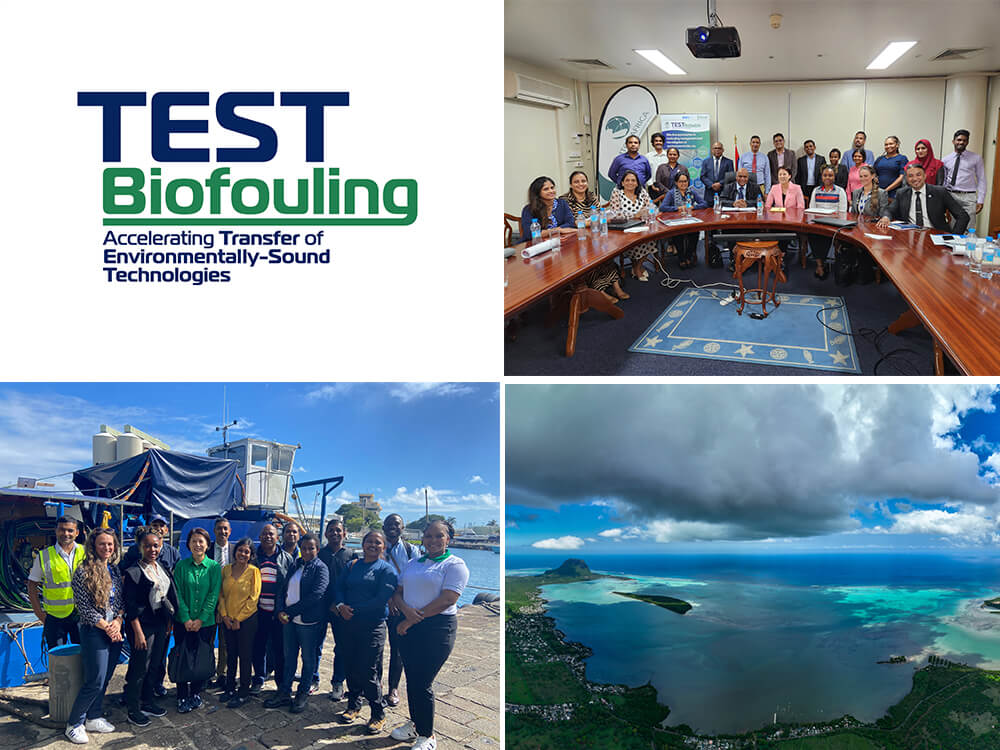
Demonstrations of effective in-water cleaning and inspection technologies have been given in the Republic of Mauritius, as part of the TEST Biofouling project, which supports countries to manage biofouling to mitigate the ecological risks associated with the transfer of Invasive Aquatic Species (IAS).
The Project focuses on the demonstration of environmentally sound technologies, particularly through pilot projects. The Republic of Mauritius welcomed officials from Madagascar and Sri Lanka, Maritime Technology Cooperation Centre (MTCC Africa), as well as the Project’s Coordination Unit, to hear about the technologies they use at a meeting (4-5 July) in Port Louis, Mauritius.
Officials from the Republic of Mauritius shared best practices and described the development process for guidance on in-water cleaning, to incorporate recommendations contained in IMO’s Biofouling Guidelines.
Participants met the Deputy Director-General of the Mauritius Ports Authority during a site visit to Port Louis. Here, they saw first-hand the advanced technologies employed within the Port in the management of biofouling.
A visit to the Rajiv Gandhi Science Centre in Port Louis provided an opportunity to hear from scientists about the impact of biofouling on marine ecosystems, and the importance of addressing it through capacity-building activities developed by the TEST Biofouling Project.
The spread of Invasive Aquatic Species (IAS) – introduced to new areas on ships’ hulls, for example – is recognized as one of the greatest threats to the ecological and economic well-being of the planet.
Mauritius, Sri Lanka and Madagascar are all Lead Partner Countries on the TEST Biofouling Project.
The meeting was jointly organized by TEST Biofouling and MTCC Africa. It was hosted by the shipping Division within the Ministry of Blue Economy, Marine Resources, Fisheries and Shipping, Republic of Mauritius.
